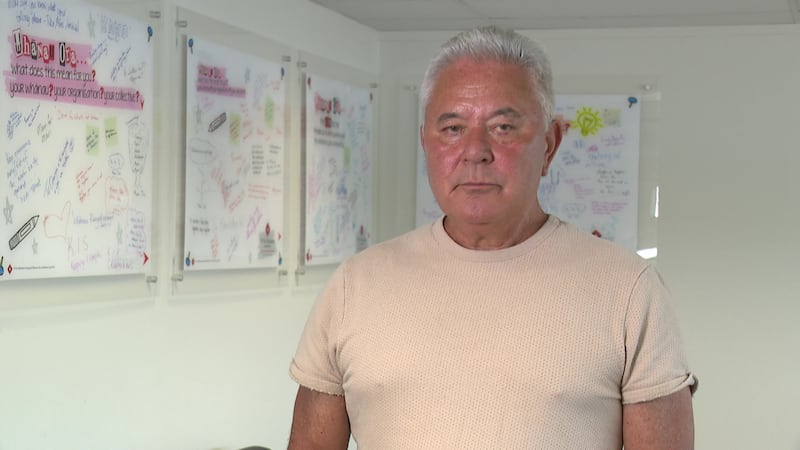An independent review has cleared two former Whānau Ora commissioning agencies of allegations they misused government funds, but recommended stronger oversight to safeguard the programme.
Secretary for Māori Development Dave Samuels confirmed the findings in Wellington today, saying the allegations were “serious” but ultimately not upheld.
“Overall, the reports found that the allegations of inappropriate use of funds were not upheld. The reviews made a number of recommendations on how to strengthen our oversight, contract, and conflict of interest management, as well as performance scrutiny. I have accepted these.”
The allegations centred on Te Pou Matakana spending Whānau Ora funds on Māori electoral roll advertising, and Pasifika Futures using funds to support the Moana Pasifika rugby team.

Māori roll campaign
The review by Doug Craig, director of the RDC Group consultancy, found Te Pou Matakana had placed Whānau Ora funds in a term deposit and used the interest earned to pay for its Māori Electoral Roll advertising campaign. Led by John Tamihere, CEO of Whānau Ora Commissioning Agency (Te Pou Matakana) and president of Te Pāti Māori, the arrangement raised concerns about a potential conflict of interest given the political implications of encouraging Māori to join the Māori electorates.
Reviewers said it was “at least arguable” that Te Pou Matakana was acting within scope by promoting “civic engagement,” but noted the agency was “not entitled to invest Whānau Ora funding” without approval. While the complaints against the charity were not upheld, the case has been referred to the Electoral Commission to clarify the boundaries of political neutrality.

John Tamihere hits back - political backlash
Te Pou Matakana Chief Executive John Tamihere launched a fierce defence, calling the review process political and discriminatory.
“This is our 14th inquiry. It’s a political hatchet job. At no time through all of the investigations have we been found to be wrongdoers. Māori organisations like us overperform, but instead of that being the main story, we still get targeted,” says Tamihere.
He said the referral to the Electoral Commission was baseless.
“It’s been flicked to the Electoral Commission. I guarantee you it’ll go nowhere because I know the law,” says Tamihere.
Tamihere argued scrutiny of his organisation comes down to politics, not performance.
“Everything we do is political. We’re honest, and that’s reflected in all the clean audits and reviews. The only thing they can speculate on is my politics,” says Tamihere.
He added that Māori organisations are ahead of the curve but still face systemic resistance.
“We can’t win. We overperform, we still get investigated. It’s all about politics. But I live in a democracy and we deserve the right to freedom of expression without fear or favour,” says Tamihere.

Rugby loan findings
The review also examined Pasifika Futures’ financial dealings, noting the agency had loaned $2.9 million to its parent body, the Pasifika Medical Association (PMA). PMA, in turn, made a $3 million loan to the Moana Pasifika rugby organisation.
Pasifika Futures told reviewers the loan to PMA was for cash flow purposes, but the report said there was not enough information to confirm how, or whether, the loan had been repaid.
“We believe that such a loan, more likely than not, has not been repaid,” the reviewers wrote.
On whether the PMA loan had been used to finance Moana Pasifika, PMA told the review it had its own separate funding - not connected to Whānau Ora - to provide that support. But reviewers said they were not given sufficient information to accept or reject that explanation.
Samuels said the findings, however, left unanswered questions.
“I have also written to Pasifika Futures seeking more answers on related party loans, as raised in the review.”
Contracts reshaped
Te Pou Matakana, which had delivered Whānau Ora services across the North Island since 2014, lost its contract in the latest tender round. The shake-up put about $155 million in Whānau Ora contracts under review, with four new commissioning agencies taking over from July.
Pasifika Futures, which held a Whānau Ora commissioning contract from 2014 until June 2025, was one of the largest agencies, with its most recent contract worth about $44.35 million a year. Critics have called for greater transparency, noting the Official Information Act does not always cover Whānau Ora agencies despite their reliance on public funding.
From 1 July 2025, four new agencies - Rangitāmiro, Te Rūnanga o Toa Rangatira, Te Tauraki, and The Tātou Collective took over commissioning Whānau Ora services across regions in the North Island, South Island, and for Pasifika families nationwide.
Samuels maintains that the integrity of the programme is crucial.
“Whānau Ora is an important programme delivering much-needed services to whānau. It is crucial it maintains its integrity and the trust and confidence of the public.”



